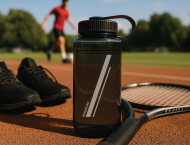Culture
 Illustration: Nick Caracciolo
Illustration: Nick Caracciolo
The Cannabis Conversation
March 30, 2019 @ 12:00am
Cannabis legalization has been a hot topic for decades, but as federal legalization of the plant and its byproducts inches closer, policymakers, advocates and enthusiasts are in the weeds with conflicting state and federal laws. For the District, cannabis legality is particularly convoluted – especially when taking the different strains and uses of cannabis products into account.
Industrial hemp, for example, lacks the chemical compound of THC, which is responsible for producing the high that consumers get after ingesting the leaves of a regular marijuana plant. Industrial hemp has been descheduled as a schedule one controlled substance under federal law, but regular marijuana has not.
Then there’s byproducts of industrial hemp to consider like cannabidiol (CBD oil), which has surged in popularity because of its health benefits studied and tested by scientists internationally. It’s so trendy, in fact, CVS announced on March 21 it will begin selling CBD products in 800 stores across eight states.
While people who consume marijuana and its byproducts for medicinal purposes have more protection from the law in DC than those who consume it recreationally, the state of the plant’s legality is confusing, to say the least.
The Law
The distinction between DC and federal law is murky, especially because the District’s budget is controlled by Congress. But by looking at the timeline of legislation, one can start to parse out what is allowed – and what isn’t – in DC regarding marijuana and hemp consumption, possession and sales.
The Agricultural Act of 2014, or Farm Bill, was passed by Congress and signed into law by President Obama on February 7 that year. While the bill reauthorized and established various federal agricultural programs, the most important aspect of the bill for cannabis advocates was the allowance of institutions of higher education or state departments of agriculture to grow or cultivate industrial hemp for research purposes. Regular cannabis, however, remained a schedule one controlled substance alongside heroin and cocaine under federal law – where it still remains today.
Four years later, the Agricultural Act of 2018 passed, opening up the industrial hemp market by allowing states to regulate their own hemp production and research. But just because states are allowed to grow hemp doesn’t mean its byproducts are legal. Martin Lee, director of Project CBD, a nonprofit dedicated to CBD oil advocacy, takes issue with this aspect of the law.
“One of biggest problems – now according to the Farm Bill – is it’s legal to grow hemp and contents within hemp plant,” says Lee, who authored Smoke Signals: A Social History of Marijuana. “But once it’s extracted out of the plant, it’s not clear what the legality is. [This bill] is like a patch for bad software, [and] it’s impossible to patch up the bad software of the Controlled Substances Act.”
The Controlled Substances Act is the federal law under which cannabis is classified as a schedule one substance. This makes recreational possession, consumption and the selling of cannabis illegal at the federal level, but DC’s robust medicinal program is licensed and protected to prevent the Department of Justice from targeting medical cannabis providers who are in compliance with state law.
In the District, Initiative 71, a voter-approved ballot initiative that went into effect in February 2015, legalizes recreational consumption and possession of less than two ounces of marijuana – as long as the adult is at least 21 years of age. Growing up to six plants and consuming marijuana is also legal in the privacy of one’s own home, but public consumption is still illegal.
Gifting marijuana under Initiative 71 is allowed as long as the amount is one ounce or less and there’s no goods, services or money exchanged for the product. This makes the commercial sale of marijuana products illegal but medicinal sales are still allowed, which explains the small number of medical dispensaries in DC.
Although Initiative 71 basically legalizes public possession of marijuana, albeit a few caveats, a federal officer still has the right to arrest anyone holding any amount of marijuana in the District under federal law. So, to answer the question: Is weed legal in DC? Sort of, but advocates remain optimistic for the not-so-far-off future of marijuana descheduling and legalization.
Advocacy
Groups all over the country are pushing for a change in legislation at the federal level, but the one place to celebrate cannabis nationally is right here in DC at the National Cannabis Festival.
Festival founder and executive producer Caroline Phillips says she and a group of cannabis advocates started the festival in 2016 for two reasons: to give supporters of legalized cannabis a place to congregate and confer with one another while celebrating the cause, and as a fresh way to have the conversation by creating an all-inclusive event no matter a person’s identity.
“We wanted to create an event that’s accessible and approachable for a broad range of people from all backgrounds, cultures and ethnicities,” Phillips says. “You’ll see people from 21 to 80 years old from all backgrounds [and] speaking different languages, but all coming together over the shared love of a plant.”
The 2019 National Cannabis Festival will take place on April 20 at the RFK Stadium Festival Grounds. Phillips says in its first year, the festival saw about 5,000 attendees; this year, she’s expecting around 20,000.
“The response has been incredible,” she says. “We’re very lucky to have been so warmly received by our [community] of enthusiasts, patients, business owners and advocates. It’s exciting to see the way activists are taking the lead and working with for-profit organizations to make sure the cannabis industry is always connected to its grassroots – pun intended.”
While live music, an epic food court and a large selection of vendors will be the focal points of the event, the festival is also hosting a policy summit the day before on April 19. The policy summit aims to bring together “a diverse group of activists and leaders from government, business, healthcare, veterans groups, and civil rights organizations to discuss today’s most pressing cannabis policy challenges and opportunities,” according to the festival’s website.
The summit is free to the public and will be the landing point for a multitude of important discussions on cannabis policy, including the media’s coverage of cannabis, the path to federal legalization, and the need for FDA regulations on hemp and marijuana consumable products.
Morgan Fox, media relations director at the National Cannabis Industry Association, says the importance of FDA regulations is an especially big issue when looking at the medicinal side of the cannabis industry because patients deserve to know what exactly is in their medication.
“All cannabis advocates right now are looking forward to the day when they can work hand in hand with regulations like the FDA to ensure the medications that we put into hands of patients are safe,” he says. “Just in the same way you want to know what’s in the food you’re eating, it’s critical for people to know what’s in the plant.”
FDA regulations on cannabis will not only protect consumers but also allow for wider research and testing to be performed on the plant, which could lead to new and exciting discoveries about its medicinal properties, according to Phillips.
“Regulations would allow for us to develop and allow standards to be set by doctors and scientists, creating an environment for a product that is already in the hands of adults and going to continue being used on a broader scale not only in the U.S. but also around the world,” she says. “It’s in everybody’s best interest to support regulation and legalization in a burgeoning cannabis industry.”
Erica Stark, executive director at the National Hemp Association, confers with Phillips but includes the benefit of the doubt for marijuana, hemp and CBD oil producers that are doing the best they can to provide quality products to their customers.
“[The lack of regulations] is a very large problem in that consumers don’t know how to tell if they’re buying a quality product or not,” she says. “There’s plenty of good quality companies out there that are doing things the right way – the problem is bad actors out there.”
This month, the FDA plans to begin public hearings on allowing companies to produce CBD-infused food products, as commissioner Scott Gottlieb told the House Appropriations Committee in late February.
But before the FDA can begin setting regulations for the cannabis industry writ large, Phillips says the first step is descheduling the plant from the federal controlled substances list and then legalization, although she would like to see both happen simultaneously.
“Activists on the federal level are trying to push the government to full legalization and would like to see the government immediately deschedule cannabis so we can have broader testing,” she says. “A lot of folks are looking at the next presidential campaign cycle with candidates in support of legalization.”
The Future
While it’s difficult to pinpoint exactly what the future of cannabis looks like in the District and the country at large, one thing all the experts sourced here agree on is growth. On the CBD oil side of things, Lee of Project CBD says he believes the trend of hemp-based oils will continue and expand exponentially once regulations are in place.
“CBD has disordered the cosmos of the federal government,” he says. “It’s the hottest thing going these days. What we need are policies that facilitate wide access to CBD products but also regulate them on the basis of public health concerns.”
Stark at the National Hemp Association thinks the CBD oil market in particular will depend on the FDA and how they choose to regulate it.
“Assuming the FDA goes down a reasonable path [with regulations], the CBD industry will expand exponentially,” she says. “It’s already quite large and will only get larger as demand increases.”
Meanwhile, Fox from the National Cannabis Industry Association says he thinks the cannabis industry will likely follow the model of the beer industry, with big producers handling the average consumer market and smaller, localized producers serving the organics and artisan market.
“I really think consumer demand is going to shape the industry as opposed to corporate interest,” he says. “Because of the time at which this industry is evolving, I think corporate responsibility and ethics in sourcing is going to be more important [with cannabis] than most consumer products because of the culture of the consumers’ concerns.”
Phillips of the National Cannabis Festival thinks the industry will follow along a line similar to what Fox proposes; but she’s focused on the District specifically and reiterates her point on the importance of regulation.
“Because you’re allowed to do home growing in DC, it allows a lot of cannabis connoisseurs – not unlike craft brewers – to experiment with different strains at home and see what they can grow,” she says. “The danger of the unregulated market that we have in many states is patients can’t always be certain how a plant has been grown.”
Tap these educational resources to learn more about cannabis legalization.
National Cannabis Industry Association: www.thecannabisindustry.org
National Hemp Association: www.nationalhempassociation.org
Project CBD: www.projectcbd.org
To learn more about cannabis in a festival setting, check out the National Cannabis Festival on Saturday, April 20. Doors open at 12 p.m. Tickets are $45.
RFK Stadium Festival Grounds: 2400 E. Capitol St. SE, DC; www.nationalcannabisfestival.com
CBD in the District
District Hemp Botanicals
Established in May 2017, District Hemp Botanicals was the first hemp-based CBD store to open its doors in the DMV. The shop boasts a wide selection of CBD and hemp products, from CBD salves and massage oils to bath bombs and gummy edibles. 9023 Church St. Manassas, VA and 19 Wirt St. SW, Leesburg, VA; www.districthempstore.com
National Holistic Healing Center
This medical dispensary located in Dupont Circle now serves all registered DC, Maryland and Pennsylvania medical marijuana patients as well as registered patients from select states. Led by CEO Dr. Chanda Macias, who has dedicated more than 15 years to understanding how medical marijuana can impact patients, the center has 98 percent patient retention and adds more than 100 new patients per month. To purchase marijuana products from the center, one must be a registered medical marijuana patient. 1718 Connecticut Ave. NW, DC; www.nationalholistic.com
Relâche Spa at Gaylord National Resort
Starting this month, Relâche is featuring 50-minute CBD oil massages for a limited time. Spa director Debra Myers says if customers respond well to the specialty massage, she will consider adding the offer permanently to Relâche’s menu. “CBD is touted to decrease anxiety, lower inflammation, reduce pain and help improve sleep, which can all be achieved topically through the CBD hemp oil used during the massage service,” she says. Each massage costs $185 and the CBD oil used is Mary’s Nutritionals hemp oil and muscle relief compound. 201 Waterfront St. National Harbor, MD; www.nationalharbor.com/gaylord-national
Vim & Victor at The St. James
There’s a little something for everybody at Vim & Victor. Chef Spike Mendelsohn created the menu with health and wellness enthusiasts in mind, as well as everyday community members. Pro tip: try Mendelsohn’s own line of CBD-infused PLNT waters. 6805 Industrial Rd. Springfield, VA; www.vimandvictor.com







